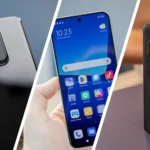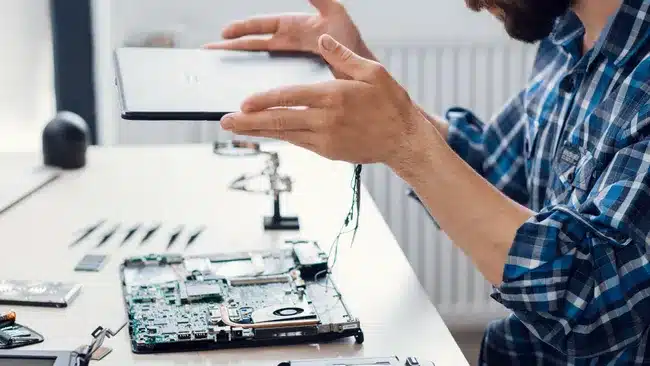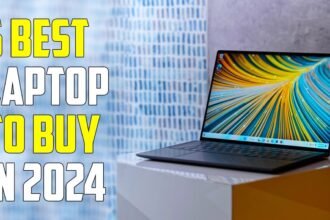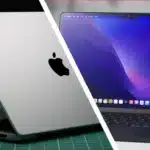Microsoft’s Surface Laptop 7 and Surface Pro 11 have emerged as formidable competitors to Apple’s MacBooks, boasting significant improvements in both performance and repairability. This article explores the key aspects that set these new Surface models apart from their predecessors and how they compare to Apple’s offerings.
A Troubled History
Performance Woes
Previous iterations of Microsoft’s Surface laptops were plagued by performance issues. For instance, the Surface Laptop 5 and Surface Laptop Go 3 were criticized for their poor performance, outdated design, and high prices. Programs frequently crashed, and the overall user experience was subpar.
Repairability Challenges
Historically, Surface laptops have been notoriously difficult to repair. The original Surface Laptop, released in 2017, received a dismal repairability score of zero out of ten from iFixit. This was due to the design, which made disassembly and repair almost impossible without causing significant damage.
| Model | Performance Rating | Repairability Score | Price Range |
|---|---|---|---|
| Surface Laptop 5 | 3/5 | 2/10 | $999 – $1,699 |
| Surface Laptop Go 3 | 3.5/5 | 3/10 | $549 – $999 |
| Surface Laptop 7 (2024) | 4.5/5 | 8/10 | $999 – $2,399 |
| Surface Pro 11 (2024) | 4.5/5 | 8/10 | $1,099 – $2,499 |
The 2024 Turnaround
Qualcomm Snapdragon CPUs
The game-changer for the 2024 Surface models is the inclusion of Qualcomm Snapdragon CPUs. These chips, built on the Arm architecture similar to Apple’s M3 chips, deliver exceptional performance and efficiency. This upgrade has transformed the Surface laptops into some of the best Windows laptops available.
Enhanced Repairability
In a significant shift, Microsoft has partnered with iFixit to provide repair tools for Surface devices. As a result, the Surface Laptop 7 and Surface Pro 11 received repairability scores of eight out of ten, making them some of the most repairable laptops on the market.
Performance Comparison
Benchmarking Surface vs. MacBook
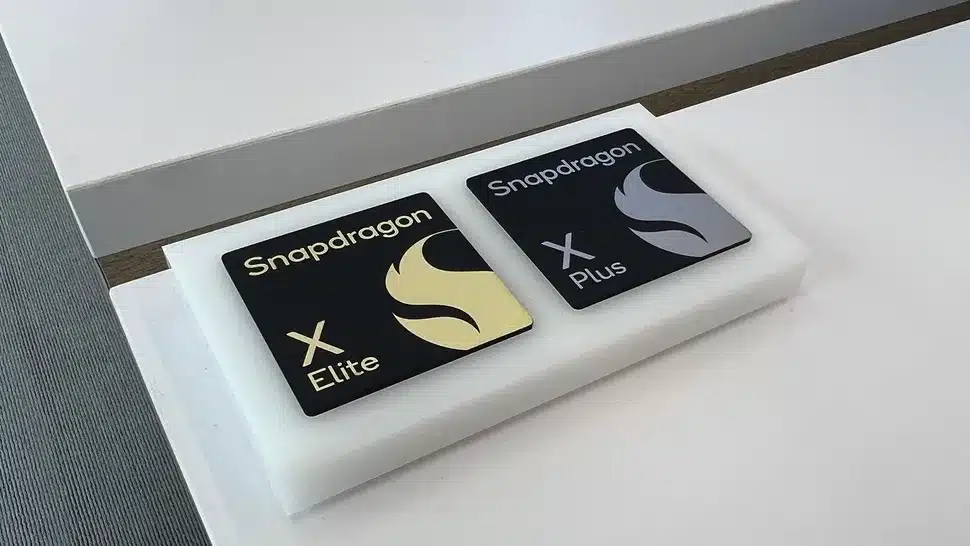
Performance benchmarks show that the Surface Laptop 7 and Surface Pro 11 can match and sometimes exceed the performance of MacBooks. The Snapdragon CPUs provide smooth, responsive performance with no stuttering, even during intensive tasks.
| Benchmark Test | Surface Laptop 7 | Surface Pro 11 | MacBook Air (M3) | MacBook Pro (M3) |
|---|---|---|---|---|
| Geekbench 5 (Single-Core) | 1,520 | 1,530 | 1,500 | 1,520 |
| Geekbench 5 (Multi-Core) | 7,900 | 8,000 | 7,800 | 8,100 |
| Battery Life (hours) | 17 | 16.5 | 18 | 20 |
User Experience
Users report a highly satisfying experience with the new Surface models, highlighting the seamless performance and improved battery life. The devices remain cool and efficient even during prolonged use.
Repairability: A Win for Consumers
iFixit Scores and Implications
The high repairability scores for the new Surface models mean consumers can perform repairs and upgrades more easily, reducing e-waste and potentially saving money on repairs. This stands in stark contrast to Apple’s MacBooks, which remain difficult to repair, often requiring professional service for even minor issues.
Environmental Impact
Improved repairability not only benefits consumers but also has a positive environmental impact. With easier repairs, the lifespan of devices can be extended, reducing the number of devices that end up in landfills.
Market Implications
Competitive Landscape
The advancements in the Surface series have heightened the competition in the laptop market. Apple’s MacBooks, while still popular for their design and performance, now face serious competition from Microsoft’s offerings, particularly in terms of repairability and cost-efficiency.
Consumer Choice
With Microsoft’s renewed focus on performance and repairability, consumers now have more compelling options when choosing between a Surface laptop and a MacBook. The ability to repair and upgrade devices at home is a significant advantage for tech-savvy users and those concerned about sustainability.
Conclusion
Microsoft’s 2024 Surface Laptop 7 and Surface Pro 11 mark a significant leap forward for the Surface series. With Qualcomm Snapdragon CPUs providing top-tier performance and a new emphasis on repairability, these devices offer a compelling alternative to Apple’s MacBooks. As competition in the laptop market intensifies, the ultimate winners are consumers who now have better choices and more repairable, sustainable devices.

